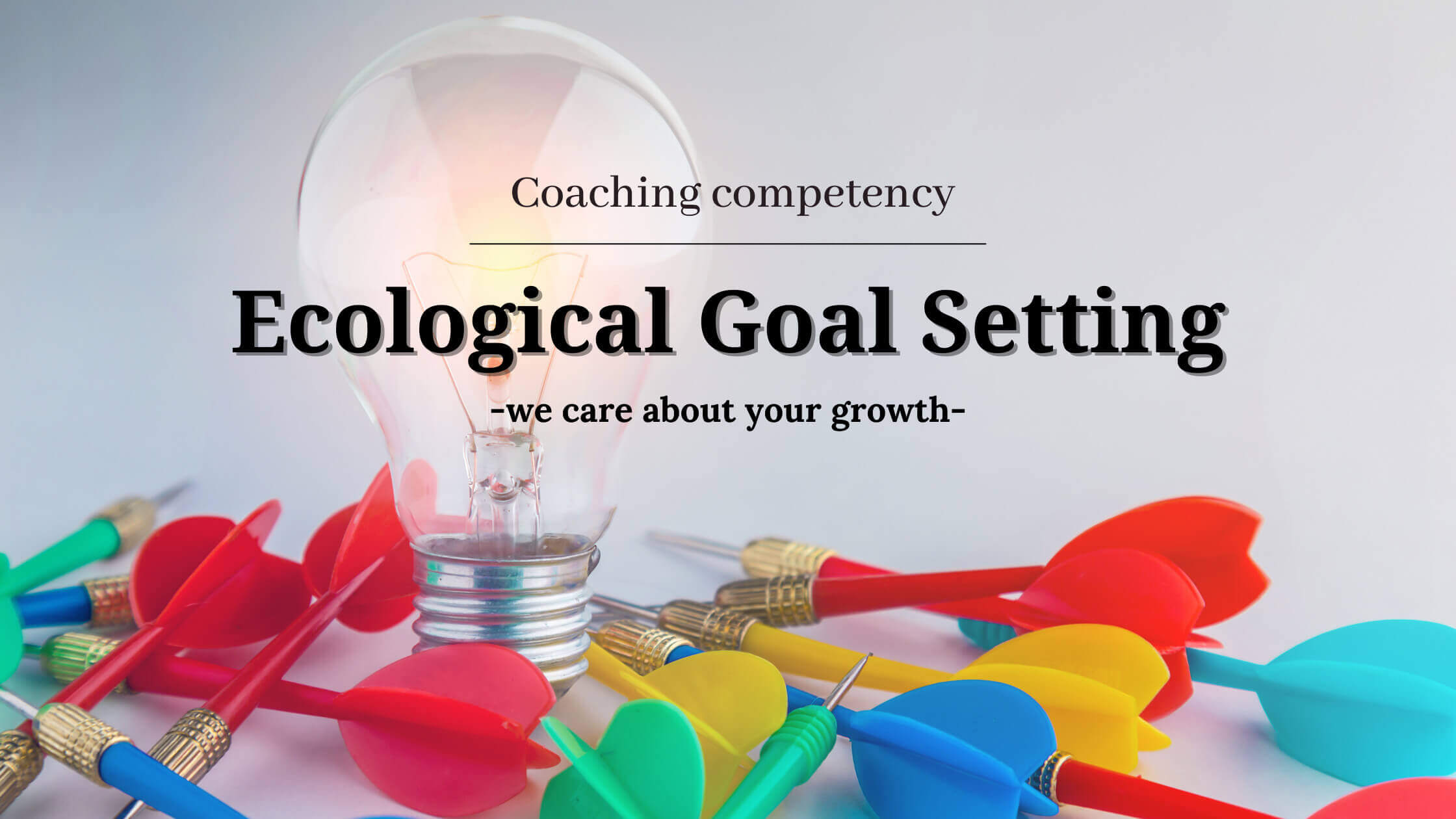In this in-depth look at the 9th CHC Core Coaching Competency, we would take you deeper into the constructs and foundation of the art of ecological goal-setting in coaching.
- What really is Ecological Goal-Setting?
- why do WE call this competency transformational?
- How does the Cognitive Hypnotic Coaching Program help you effectively chalk down just the right goal for you & help design a blueprint for the same?
Introduction
Einstein once said, “A goal is not a goal until you can explain it to a 5-year-old, and that 5-year-old can explain it to another 5-year-old.” For practicing psychologists and coaches, mastering the art of goal setting is essential.
However, there are times when one goal can negatively impact other, more important goals from the perspective of the coachee’s unconscious mind. In such cases, the unconscious may resist these goals, leading to self-sabotage and misery.
Traditional goal-setting methods often fail to consider this complex interplay between different areas of life and the unconscious mind. This is where NLP Ecological Goal Setting comes in, offering a holistic and transformative approach.
Ecological goal-setting ensures that goals are set in a way that they do not negatively affect any other aspects of the client’s life.
What is Ecological Goal Setting?

Ecological goal setting is a comprehensive approach that ensures the goals set by clients are in harmony with all aspects of their lives. Unlike conventional goal setting, which often focuses solely on the desired outcome, ecological goal setting considers the broader implications, including emotional, social, and unconscious factors.
Why is Considering the Ecology of Goals Crucial in Coaching?
Ignoring the ecological aspect can lead to unintended consequences. For instance, a client might achieve a professional milestone at the expense of their personal relationships or health. Ecological goal setting helps in creating balanced goals that support overall well-being and sustainable success.
Key Principles of Ecological Goal Setting
- Holistic Perspective: Viewing the client’s life as an interconnected system.
- Balance and Harmony: Ensuring goals do not conflict with each other or with the client’s values and needs.
- Sustainability: Focusing on long-term success rather than short-term gains.
SMART Goals vs. Ecological Goals
While SMART (Specific, Measurable, Achievable, Relevant, Time-bound) goals are effective, they often lack the depth of ecological consideration. Ecological goals take a step further by ensuring that every goal is balanced with other life areas and internal values.
NLP and CHC
Overview of NLP
Neuro-Linguistic Programming (NLP) is a powerful methodology that explores the relationships between how we think (neuro), how we communicate (linguistic), and our patterns of behavior (programming). It provides a toolkit for understanding and influencing human behaviuor.
The Cognitive Hypnotic Coaching Advantage
Unlike other coaching approaches, Cognitive Hypnotic Coaching goes beyond engaging with the client’s conscious mind. It enhance the ecological goal-setting process by ensuring that goals resonate with the client’s unconscious mind. This alignment minimizes internal conflicts and fosters a deeper commitment to achieving the goals.
The framework uses hypnosis to seamlesly integrate NLP with different psychological approaches.
Unique Features
- Integration of Multiple Disciplines: Combines NLP, hypnotherapy, mindfulness, and more.
- Comprehensive Training: Covers all aspects of coaching and psychotherapy.
- Practical Application: Emphasizes real-world application and skill development.
Benefits of Combining CHC and NLP with Ecological Goal Setting
- Improved Alignment: Ensures conscious and unconscious goals are in sync.
- Conflict Resolution: Identifies and addresses potential conflicts between goals.
- Enhanced Motivation: Engages the client’s entire being, making goal achievement more compelling and achievable.
SOFT SEA® Framework

The SOFT SEA® framework is an advanced goal-setting model utilized in Cognitive Hypnotic Coaching, designed to ensure that goals are not only achievable but also ecologically sound. It encompasses:
- Current Situation (S): Understanding the client’s present state.
- Desired Outcome (O): Defining what the client wants to achieve.
- Future (F): Exploring actions (A), capabilities (C), and emotions (E) needed for goal attainment.
- Tasks (T): Outlining specific tasks, including hindrances (H) and replacement emotions (E), to be addressed.
- Summary (S): Summarizing the goal and plan.
- Evaluation (E): Continuously assessing progress and making necessary adjustments.
- Assignment (A): Assigning tasks and responsibilities to ensure accountability.
Key Techniques in CHC and NLP Ecological Goal Setting
- When-Then Statements: Managing triggers and responses.
- Meta-Model & Language Patterns: Using precise questioning to uncover hidden aspects of goals.
- Matching & Mirroring: Building rapport and trust.
- Visual, Auditory & Kinaesthetic Techniques: Catering to different learning styles.
- Eye Assessing Cues: Understanding clients’ thought processes.
Steps to Implement NLP Ecological Goal Setting in Cognitive Hypnotic Coaching
- Initial Assessment
Begin by understanding the client’s current situation and goals. This involves a thorough discussion to uncover their desires, motivations, and potential obstacles. - Brainstorming and Mapping
Generate a wide range of ideas and map them out to visualize connections and conflicts. This step helps in identifying which goals are truly important and feasible. - Creating the Blueprint
Develop a detailed plan that outlines the steps needed to achieve the goal. This blueprint should include timelines, resources, and potential challenges. - Identifying and Addressing Conflicts
Ensure all goals are harmonious by identifying and addressing any conflicts. This involves exploring the unconscious mind to uncover hidden objections or fears. - Monitoring and Adjusting
Continuously review and refine the goals and plans. This dynamic process allows for adjustments based on feedback and changing circumstances.
Real-Life Applications and Case Studies
Case Study 1: Transforming Career and Personal Life
A client aimed to advance in their career while maintaining a healthy work-life balance. Through NLP Ecological Goal Setting, they identified potential conflicts and created a balanced plan that led to a promotion without sacrificing personal relationships.
Case Study 2: Overcoming Goal-Setting Challenges
Another client struggled with conflicting goals. By applying ecological goal-setting techniques, they resolved internal conflicts, leading to greater clarity and commitment.
Advantages of Ecological Goal Setting for Psychologists and Coaches
- Enhanced Client Outcomes
Clients achieve more balanced and sustainable results, leading to higher satisfaction and long-term success. - Personal Growth
Coaches also benefit by developing a deeper understanding of goal dynamics, enhancing their own personal and professional growth. - Professional Edge
Mastering ecological goal setting sets coaches apart in the industry, providing a unique and advanced service to clients.
Conclusion
Incorporating NLP Ecological Goal Setting into your coaching practice can lead to more profound and lasting results for your clients. By considering the broader impact of goals and aligning them with unconscious motivations, you can help clients achieve true balance and success.
The Cognitive Hypnotic Coaching Diploma offers an opportunity to master these techniques and elevate your coaching competency. Explore the program today and take the first step towards becoming a more effective and insightful coach.

